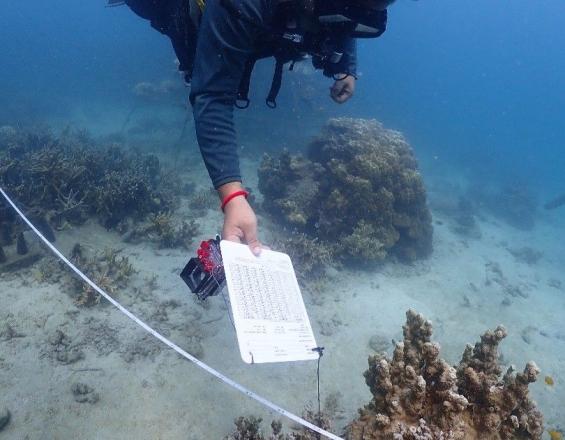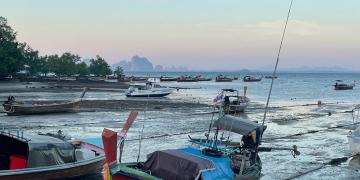IUCN in collaboration with OCTO (Open Communications for The Oceans) has just concluded a successful pilot; the SEA Success initiative, on knowledge exchange within Marine Protected Areas in Thailand and Bangladesh. This project set out to address management and governance challenges in MPAs, in a tailored approach.
Marine Protected Areas (MPAs), worldwide face challenging issues like climate change, lack of up-to-date accurate data, human actions such as plastic pollution and encroachment, insufficient funding and resources to advance the necessary activities, and expertise for effective planning, coordination and management, that affect the smooth running of their operations. To successfully address these barriers, the MPAs require a tailored approach to fit their context. The knowledge to provide a fitting process to recovery is available sometimes closer than people think, however, the problem is the existing gap in matching the knowledge to those who require it.
The SEA Success initiative started by capitalising on the project partners knowledge banks and experience, at individual site level. The PANORAMA marine solutions provided a familiarity the MPAs could understand and use in their setting while OCTO provided them with a knowledge hub for useful resources to empower and build their capacity in applying best practices. The IUCN Green List offered locally relevant expert guidance to help achieve fair and effective nature conservation results in protected areas.
The MPA in Thailand, the Hat Chao Mai-Ko Libong (HCM-KL) Seascape in the Andaman Sea, protects important seagrass habitats for more than 150 threatened dugongs. In Bangladesh, the island of St. Martin houses and guards the nation’s only recorded coral, as well as numerous vulnerable marine turtle, mammal, and cetacean species. The Island faces numerous challenges including marine pollution, sedimentation, overfishing, mangrove habitat destruction, and impacts of tourism development. While both sites are established as Marine Protected Areas, the unique challenges they face require specific solutions to maintain the health and productivity of the ocean and enable sustainable use of their marine resources. Leveraging on the online platforms was not enough to ensure adequate knowledge uptake and action hence, the need for further engagement through targeted “knowledge brokering” that would support finding and applying of other solutions to their local contexts.
Bringing together practitioners and experts in a direct interpersonal local setting, for knowledge brokering, resulted in greater depth exchanges, intensive technical support and mentoring, marking a shift from “serve yourself platforms” to more of a peer-to-peer relationship. This proved to go beyond the traditional consulting and capacity building approach showing that tailored guidance to a marine site builds lasting knowledge and mentoring connections, that offer vast potential to transform any global MPA’s effectiveness over time.
The SEA Success initiative applies three components in its proposed solution. First is the scoping of site-specific challenges facing marine practitioners who seek ways to make existing MPAs more effective. Secondly is the exchanging of information on how identified challenges to success can be overcome, based on the experience of peers elsewhere, resulting in mentoring relationships that support the subsequent process of implementing specific actions. Finally, activating (and potentially providing) additional direct, technical, political, and financial support and capacity development to implement suitable solutions to specific challenges, and to maintain and amplify success over the long term. This can take the form of tailored action plans that get other actors to invest in sites; through specific, tailored provision of information on relevant funding mechanisms; and/or through direct financial support for specific implementation actions.
This initiative presents the first-ever scalable solution for site-level knowledge brokering worldwide, that addresses the needs for site-level support in an innovative way – at a flexible scale that is both global and highly local at the same time. Drawing lessons from this pilot, the partners intend now to roll out the approach broadly to serve the global MPA field.
For more information, please contact: Marie.Fischborn@iucn.org


